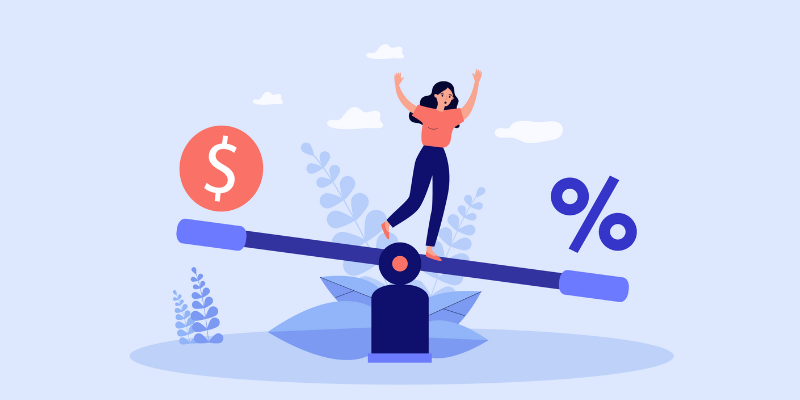BY AMANDA N. WEGNER
Whether you’re planning for retirement, considering a major purchase or growing your savings, interest rates play a pivotal role in your financial life.
“You work hard for your money. Everyone should have a basic understanding of interest to make sure their money is working for them,” says Sarah Brenden, first vice president of private banking for Park Bank.
In the past two years, interest rates have been a moving target. Here’s a primer on the last two years and actionable insight for navigating changing rates.
A STEADY RISE
Since the beginning of 2022, the federal funds rate, or interest rate, has increased 11 times by varying amounts. And our pocketbooks have felt it.
“A group of individuals within the Federal Open Market Committee (FOMC) raise the federal funds rate when they want to slow economic activity and moderate inflationary pressures,” explains Annette Hellmer, SVP, wealth regional manager of Johnson Financial Group.
For savers, adds Hellmer, fund rate changes are quickly reflected in the yields earned in short-term savings. Financial products and vehicles, such as fixed-rate mort- gages, aren’t directly impacted.
“People believe that the government has more direct control over interest rates than it actually does,” says Hellmer. “While the Fed can control overnight lending rates, longer-term interest rates are determined by financial markets. There are many factors that influence interest rates, but two of the more significant ones are inflation expectations and the current state and strength of the economy.”
While the Fed held the interest rates steady at its September meeting, citing a drop in inflation, there’s a possibility of one more increase by year’s end based on current trends, notes Hellmer.
“We are hearing that we can anticipate another rate increase this year, then hold in the first and second quar- ters in 2024, followed by a slow, incremental decrease in summer and fall,” says Brenden. “It’s anybody’s guess.”
With interest rates expected to remain elevated for the foreseeable future, here are some suggestions.
MANAGE YOUR DEBT
Know the interest rates on your debts, including loans and credit cards. If you can, says Hellmer, prioritize and accelerate payments on loans or credit cards with the highest interest rates.
“Many people don’t fully appreciate that subtle differences in interest rates, even 0.25%, when compounded over long periods of time, can significantly impact the total dollar value of interest payments,” says Hellmer.
Getting your debt in check helps shore up your credit-worthiness, as riskier borrowers often pay higher interest rates to borrow funds.
SAVE BIG
With interest rates high, savers benefit by earning a higher yield on deposit and money market accounts. But, Hellmer cautions, go “rate shopping” or compare different alternatives — both products and institutions — to ensure you’re earning a competitive rate.
Another option is a CD or certificate of deposit, says Brenden, as rates have shot up. The caveat with a CD is that your money is locked up for the term of the CD; withdrawing the money early may result in a penalty.
Now is also the perfect time to shore up an emergency fund if you don’t have one already.
“Keep three to six months of reserve in savings if you can,” says Brenden. “Having a few months of living expenses liquid will help you in an emergency.”
DON’T SHY AWAY FROM REAL ESTATE
If you can tolerate a higher interest rate for a while, Brenden says real estate remains a good investment.
“It holds value, generally even in uncertain economic times, and often will appreciate in value over time,” she says. “And when interest rates come back down, you can refinance.”
KEEP BUILDING WEALTH
The market’s response to interest rate hikes can positively and negatively impact your retirement portfolio. Now is the perfect time to connect with a trusted financial advisor to ensure you have a diversified portfolio and identify additional opportunities to build wealth. And, importantly, stay the course. With compound interest, time in the market is more important than timing the market.



